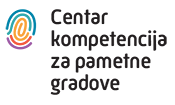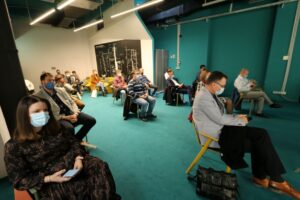Smart cities use modern technologies to provide their citizens with a better standard of living through information and communication technology. In the last few years, the concept of smart city has become so popular and attractive as a new innovative industry that competition has started for someone to invent something new, so some have devised a “smarter” model because the goal is to constantly improve the system and always strive for better, not some level of smart.
Also, many models have emerged that have been used to describe the concept and definition of what makes a smart city. For the sake of simplicity, transparency, and at the same time the integrity of the display of model components, we bring a slightly customized multi-layered display model.
Policies and goal settings
At the level of policies and goal setting, the focus is on the well-being of citizens. In the area of sustainability and environmental protection, policies and objectives for energy efficiency, monitoring of environmental indicators and monitoring of the exploitation of natural resources are defined. Of course, the government must also bear in mind the economic viability of such a policy, which will bring new investments and jobs and stimulate innovation. The ultimate goal of quality economic policy is a high level of satisfaction with the quality of life and standard of living of its citizens.
A higher standard of living also means higher labor costs, which, on the other hand, must be supported by products and services of a higher degree of complexity, with a greater share of embedded knowledge and innovation. The standard of living of a society depends on productivity. Productivity is primarily the result of investment and competitive competition, and it can be stated that Croatia lags significantly in this context.
At the level of smart industries and services, the goal is to improve all components. Utilities such as water supply must be equipped with modern technological solutions in order to increase efficiency and reduce losses. Energy-efficient construction in smart locations needs to be encouraged, and smart government includes smart services for citizens accessible through the internet, communication between public authorities ‒ instead of citizens walking from department to department.
Smart Infrastructure
Smart infrastructure is actually an ICT infrastructure that enables a smart city. There are various control systems for monitoring and remote control of utility systems, sensors that allow data to be received for these systems, smart devices, web services for inter-system data exchange, network infrastructure, and systems for analyzing the data collected so that they can bring informed information. , better decisions, and set realistic but ambitious goals.
Globalization and the increasing use of new technologies bring about the fact that, to an increasing extent, individuals, companies, societies and nations have to compete with the rest of the world. A key Croatian problem is the lack of cooperation between the economy and the research community on specific projects, or too few commercial projects that are the result of such cooperation.
In the last twenty years, the global environment has undergone significant changes. The modern economy is increasingly becoming an economy based on knowledge and innovation. Research, technological development and innovation are essential factors in strengthening the competitiveness of national economies and are extremely important for their long-term sustainability and growth. World experience from advanced countries (Austria, Sweden, Denmark) shows that competence centers can be an important factor in improving the capacity of local communities and regional economic ecosystems, enabling them to be more competitive.
What about EU ?
Europe is rapidly seeking new sources and ideas for economic growth. EU companies can no longer compete with the world on the basis of low prices or low product quality, the EC said in its strategic document “For a European Industrial Renaissance”.
Turning to innovation, increasing productivity, efficient use of resources and high added value in products and services that can compete in an increasingly complex global market is key – and the Smart Cities Competence Center with its industry, SME, university and city stakeholders can help .
Economic recovery must be based on high-quality human capital, high-quality institutions, sound macroeconomic and financial management aimed at stimulating economic growth and fostering involvement in global value chains.
We need to offer solutions for the modern world, for a small country integrated into a large EU. The solutions lie in entrepreneurship, the release of creative and individual responsibility in the private, research and public sectors. In addition, the state and local self-government need to be of high quality service, invest in education, provide high quality public services, fund research, development and innovation and therefore have partners in large, medium and small enterprises.
Modernized and professionalized public administration is an important factor in the context of smart cities. Making regulations based on impact assessment and regulatory cost calculations must be stimulating rather than restrictive. Affirmation of responsibility, creativity, independence and professionalism in public administration is a necessary prerequisite for a better business environment – and one of the tools to increase their efficiency are certainly the components of the ICT solution for smart cities.



